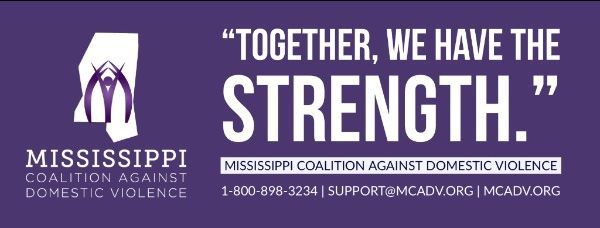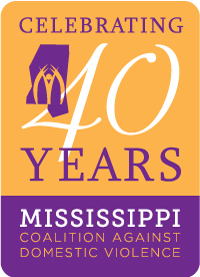
January is National Stalking Awareness Month (NSAM). Though millions of men and women are stalked every year in the United States, the crime of stalking is often misunderstood, minimized and/or ignored. Stalking is a serious crime that impacts approximately 1 in 16 women and 1 in 17 men during their lifetimes. It is estimated that 6-7.5 million people are stalked in a one-year period in the United States. National Stalking Awareness Month is observed nationwide – sounding a call to action for everyone to recognize and respond to this serious crime.
Know it
Stalking is generally defined as a pattern of behavior targeted at a specific person that would cause a reasonable person to feel fear. Fear is central to the definition in stalking. Usually the stalker is a current or ex romantic partner, friend or acquaintance and can occur during a relationship or after a relationship ends. Stalking is often an indicator of other forms of violence. It is something many victims and survivors of domestic violence must contend with as part of their abuser’s pattern of control and power, as former and current intimate partners often use stalking to terrorize their victims.
People aged 18-24 have the highest rate of stalking victimization. Stalking takes its toll emotionally, psychologically and even financially. Stalking victims have higher rates of depression, anxiety, insomnia, and social dysfunction than the general population. Stalking victims are often forced to move because of their victimization and many lose five or more days of work.
Name It
Most stalkers use multiple tactics to scare their victims. These behaviors may include (but are not limited to):
- Unwanted contact through repeated calls (including hang-ups), texts, e-mails or messages.
- Watching, following, or tracking a victim using technology (like GPS, apps, or hidden cameras)
- Sending unwanted gifts or letters.
- Showing up or waiting for victim at their home, work, or school.
- Damaging property.
- Harassing the victim’s co-workers, family, or friends.
- Threatening to hurt the victim or those close – family, friends, pets.
- Sneaking into the victim’s home or car and doing things to scare the victim or let them know the perpetrator had been there
Stop It
A collective community response is required to end stalking. It is important that all members of the community can define and recognize stalking behaviors. Another important step is creating and supporting safe environments within relationships, schools, and communities through program and policies that promote healthy relationships.
Friends and family members are usually the first people a stalking victim talks to about what is going on and their responses heavily influence whether a victim seeks further help. When supporting a stalking victim:
- Believe and validate victims. Do not minimize or “downplay” stalking.
- Help the victim think through options – like reaching out to local service providers or calling police. —
- Support the victim and encourage them to seek help and document the stalking. Be sure to keep track of when and where the event took place.
- Respect the victim’s privacy. • Do not share any information about the victim with the stalker.
- Victims may or may not want to take action. Respect their choices. Continue to check in and be a source of support.
- Visit mcadv.org to locate local service providers.
Information compiled from stalkingawareness.org

The Mississippi Legislature is Back in Session!
As we say “Hello” to a new year, we look forward to the 2021 Legislative Session. On Tuesday, January 5th, legislators returned to the state capitol to begin the 2021 Legislative Session to address legislation concerning the new state flag, tax cuts, teacher pay raises and allocations for the state budget. With many new rules in place due to COVID-19, lawmakers are still committed to serve Mississippians while adhering to safety regulations such as wearing a mask and social distancing. MCADV promises to continue to advocate for public policies that positively affect victims of domestic and sexual violence. With last year’s passage of Mississippi’s Advocate Confidentiality statue, we know that legislators hear us and are present in the fight to ensure safety and provide resources to victims across our state.
MCADV 2021 Legislative focus: This legislative session, the MCADV policy team’s focus is to provide education and advocacy concerning the match requirements of the Domestic Violence Fund granted by the Mississippi State Department of Health through the Office Against Interpersonal Violence. Mississippi Code § 93-21-107 outlines the requirement that any state-source grant made to a shelter shall be matched with local funds in the amount not less than twenty-five percent of the amount granted by the state source. This statue adds financial strains on Domestic Violence shelters across the state. Shelter programs are experiencing little to no donations from local businesses and donors due to hardship caused by COVID-19. Our advocacy will educate legislators on how important and beneficial the removal of the match requirement is to shelter programs and victims in light of the COVID-19 pandemic.
Mark Your Calendars for MCADV Advocacy Day 2021
Plan now to participate in our annual Advocacy Day activities on February 24, 2021.
Be sure to attend our Pre-Advocacy Day Webinars to get the latest training and information concerning Advocacy Day 2021.
- Pre-Advocacy Day Webinar: Advocacy Day 101
- February 17, 2020, 10:00 AM
- Pre-Advocacy Day Webinar: Policy Forum
- February 23, 2020, 2:00 PM
For more information about MCADV Virtual Advocacy Day and our policy agenda, email robin.jackson@mcadv.org.

Shelter Spotlight

This year, Care Lodge celebrates 40 years of serving victims of domestic violence and preventing violence throughout east central Mississippi! The staff team at Care Lodge has blazed new pathways since 1981, to better connect victims to services that will help thrive as they increase their safety after being under the weight of trauma caused by abuse in their home.
Care Lodge found many opportunities to work around new challenges through a global pandemic. As a partner agency, they gladly extend the offer to work alongside MCADV to help strengthen the impact of prevention and victim service efforts as part of the coalition. Help Care Lodge promote free services and support victims by following them on social media and subscribing to their YouTube channel and podcast.
- www.carelodge.com
- https://www.facebook.com/CareLodge
- https://www.instagram.com/carelodgems/
- https://twitter.com/CareLodgeMS
- https://www.youtube.com/channel/UCuw0M4hZsPCsLc0TcIu2KXA
- https://soundcloud.com/findingyourway
Look Who’s Joined the Team!
What’s better than hiring an UBER driver? Meet Nina Blanks, Care Lodge’s new Transportation Aide! Nina joined the Care Lodge family in August 2020, to provide a special service. Her daily route includes safe rides for survivors to receive medical care, attend job interviews, and connect with social services helping them thrive by increasing their autonomy. Nina fills a major gap in service by providing transportation for those who do not have the means to get to where they need to go. Thanks Nina for enthusiastically helping others accomplish big goals in their greatest time of need!
The Devil You Know
It was a nightmare that kept getting worse, a horror movie with too many sequels. In a quiet town in the Northwest where a barber shop and a locally owned cafe are the big attractions Main Street has to offer and the largest employer is a textile factory, a stalker wreaked havoc and fear on high school girls for over a year. No one imagined it was someone from their own community. They were certain that an outsider had penetrated their “Mayberry.” Truth is, it was a stand-offish, fairly quiet student from the local high school. He assumed a moniker that was difficult to trace and moved among his classmates fairly unnoticed. His victims were the “regular” girls at the school who were neither popular nor unknown. They were girls who had showed kindness to him, sat with him at lunch, and often engaged in friendly conversation. They were unsuspecting.
His strategy was simple, but common. He created an online profile, using a handsome picture and a caring persona, inviting would-be victims to become his friend. Upon acceptance of the friendship invitation, the two would talk about her favorite classes, favorite family members, favorite pets, favorite foods and her other favorites. He made careful note of all answers and would use this information later against them. As communication deepened, he began to ask for fun photos, then progressed to pictures of specific body parts—clothed and eventually unclothed. His “friends” often were hesitant to send nudes, but because he seemed so safe they ventured into the murky waters. When a victim would attempt to leave the relationship, he would begin threatening to publicly share the pictures or he would threaten to access or shut down their social media accounts. Neither of the girls had given him their passwords, yet he was able to access their account because of the things he learned about them early on. He was tech savvy beyond his high school years. It could be said he was a maniacal genius, hacking social media passwords, finding his victims when they changed their numbers or created new social media accounts under different names.
Many of the girls knew each other, but neither of them was aware that the other was a victim. They did not talk about the private torture because of embarrassment. As the stalking progressed, several of the victims began battling insomnia, anxiety and falling grades, which was often attributed to “high school girl stress.” The harassment eventually became unbearable and the girls began to break their silence by reporting school officials, law enforcement and parents.
The federal government got involved in the case and launched an investigation which identified locations and devices from which he had logged in. Initially when confronted, he denied the allegations and attempted to assure the officers that they were mistaken. Sufficient evidence was presented, and he was arrested, incarcerated and placed on trial. He faced some of his victims and ultimately received a sentence of eight years. Twenty-eight young ladies came forward with accounts of being victimized by him.
What you have read is an account of stalking. Unfortunately, this is not an isolated incidence, nor is it something that happens rarely. What is stalking? In Psychology Today, Dr. Ronald M. Holmes, professor emeritus of criminology, proposes these categories of stalkers:
Domestic: stalking a former spouse or paramour. This is the most prevalent kind of stalking and one which can manifest in the workplace, putting innocent bystanders at risk.
Lust: serial predators who stalk victim after victim. Serial rapists and murderers may begin as lust stalkers.
Love-Scorned: an acquaintance, coworker, neighbor, etc. who desires an intimate relationship with the victim, but is rebuffed. A sub-type of the love-scorned stalker is someone with the delusional disorder erotomania. This type of stalker—usually female—believes her target is madly in love with her.
Celebrity: those who stalk famous people.
Political: stalking motivated by political beliefs, which could include either agreement or disagreement with the victim.
Hit (murder for hire): stalking of a victim by a hired killer in order to commit murder.*
